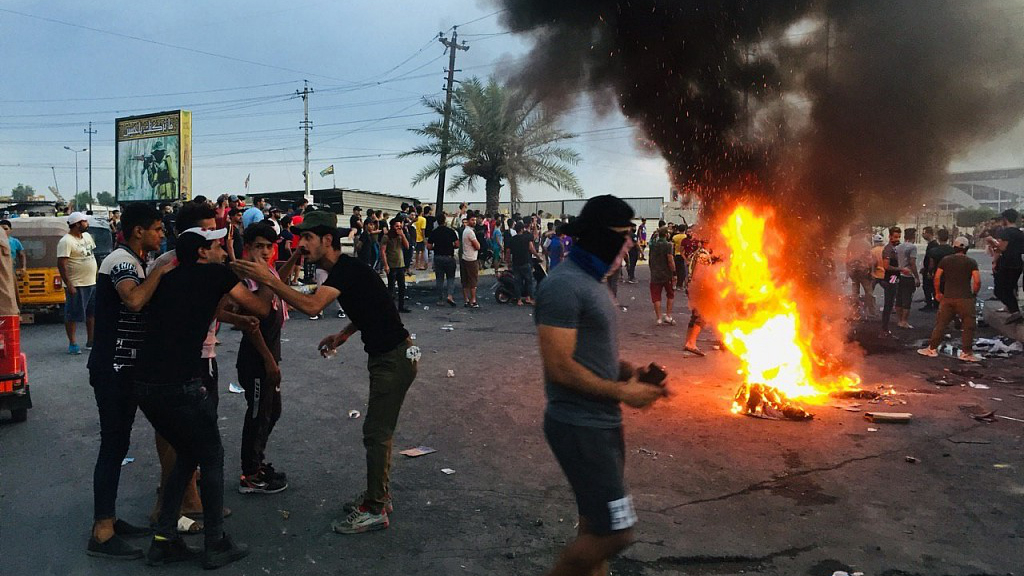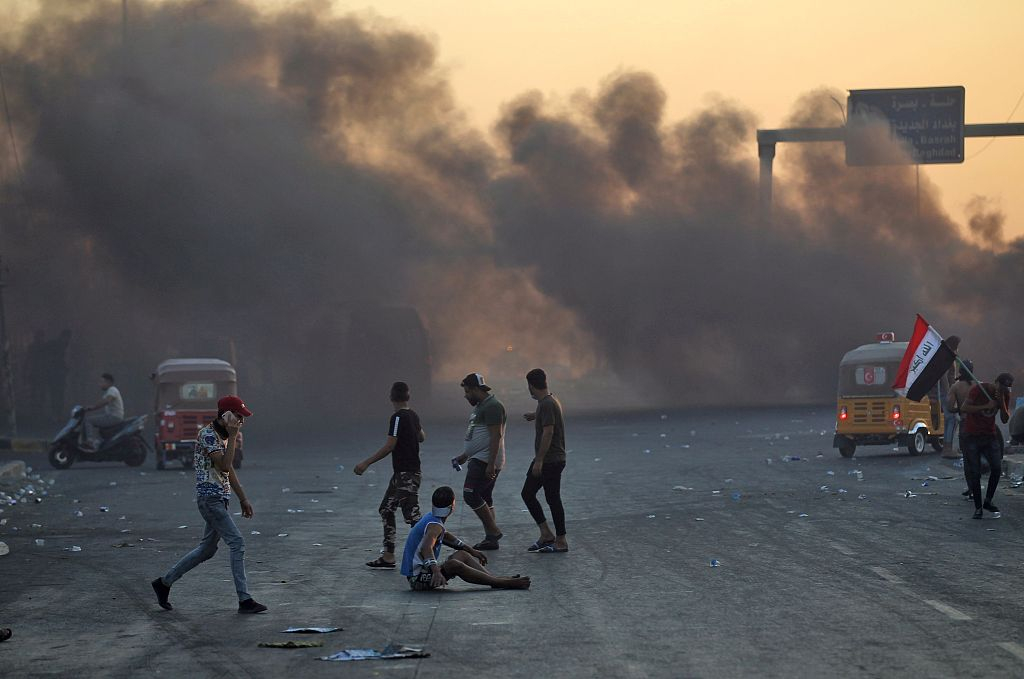02:13

This week's protests mark the biggest challenge yet for Iraqi Prime Minister Adel Abdul Mahdi since taking office a year ago. For days, thousands of young men rallied across Baghdad against corruption, failed public services, and high unemployment.
More than one hundred protesters have been killed and thousands others were injured during clashes with the military. The Iraqi government has admitted using excessive force to end the demonstrations and is promising several social reforms.
Two years after declaring the defeat of ISIL, Iraq is still struggling to rebuild destroyed cities and bring thousands of displaced people home.
Ahmed Rushdi, senior policy adviser to the speaker of the Iraqi Parliament and the Director of the House of Iraqi Expertise Foundation, says officials and the politicians who are inside Parliament and the Iraqi government need to work hard now.
"It's not only for the demands of the demonstrations, but also to build up a strategic financial relationship with neighboring countries and the international community," says Rushdi.
Moreover, Rushdi thinks that the reform can be a temporary solution so that the Iraqi government can work hard to deal with a bureaucratic structure based on corruption, and ask for help from the international community and neighboring countries.
Bilal Wahab, the Wagner fellow at Washington Institute for Near East Policy, believes that the crisis is serious because it represents the systematic failure of the government in providing appropriate government services and jobs, especially for young Iraqi people.
He thinks that the Iraqi government is capable, but it has inherited structural problems so it will be difficult for the government authorities to perform some of the deep reforms that the public demands. And there is a possibility that these protests will escalate into demanding greater change to the political system itself.

Smoke rises from burning tyres during as Iraqis demonstrate against state corruption, failing public services and unemployment, in the Iraqi capital Baghdad, October 5, 2019. /VCG Photo
Smoke rises from burning tyres during as Iraqis demonstrate against state corruption, failing public services and unemployment, in the Iraqi capital Baghdad, October 5, 2019. /VCG Photo
Bilal Wahab stresses that the election system needs to be reformed so that it can provide a system of checks and balances in the implementation of the Constitution.
Abdel Bari Atwan, the editor-in-chief of the digital Arabic news, opinion site, and Rai al-Youm, point out that corruption is severe since it includes corruption in the political system and the elites, so this kind of sectarianism is destroying the country.
Atwan thinks that the biggest problem that the Iraqi elites and the Iraqi people are facing is also an identity or collective identity problem. He also stated that it is a crime when the government admits to the use of excess power against young demonstrators.
"I believe the sectarianism is the biggest problem facing Iraq unless they solve this problem and build a real coexistence between Iraqi people," says Atwan.
Harlan Ullman, chairman of the Killowen Group and senior adviser with the Atlantic Council, says that the constitution was flawed when it was put in place by the coalition.
He thinks there is a chance the government will make the situation grimmer because it can't deal with the demands made. On another note, he added that with the instability no country will invest in Iraq as it would be seen as a waste of money.
"I don't know how any government in Iraq would be able to deal with the things that are being demanded by the protesters in terms of jobs, food, and water so that I fear it's going to get worse," says Ulman.
"The Heat" is a daily talk show anchored from Washington D.C..The 30-minute program focuses on top stories making news globally. The Heat presents tough issues from a comprehensive, balanced and international and Chinese perspective. Guests from on the spot and around the world ensure lively debate and a range of voices.
Schedule: Tuesday-Saturday
Time(GMT): 0630, 2300
(If you want to contribute and have specific expertise, please contact us at opinions@cgtn.com.)